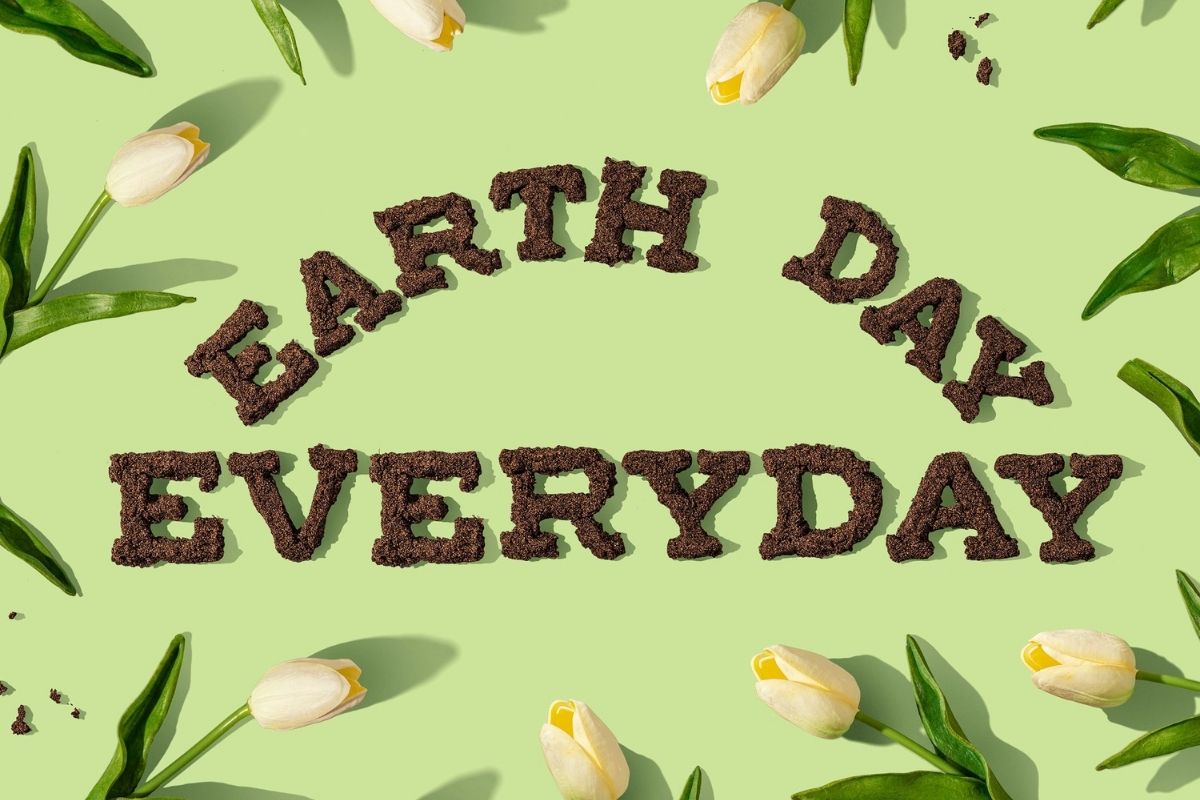By Nicole Rivard
I recently went to Walmart on my lunch break to get some potting soil to transplant my Guana chestnut tree, aka money tree, which had outgrown its current container.
Walking through the lawn and garden section it was jarring to see product after product that kills insects above and below the ground, weeds, moss and all species of wildlife who dare to eke out a place to live in people’s yards.
They had names like the Eliminator—Total Vegetation Killer; Gopher Gasser; Corry’s Slug and Snail Killer; Harris Snake Glue Trap, Maggie’s Farm Beetle and Boxelder Bug Killer—the deadly list went on and on and on.
Aren’t gardens supposed to be a place to bring things to life?
When I got back to the office Friends of Animals’ president Priscilla Feral encouraged me to support our local garden store—The Gardener’s Center of Darien—because it has made the switch to products that eschew toxic synthetic pesticides in favor of holistic management practices and least-toxic and organic products.
The Gardener’s Center philosophy is to create a living, biodynamic soil structure that helps to naturally ward off pests and diseases, while requiring no artificial supplements. It also features a wide selection of pollinator-friendly and locally grown native plants that need minimal amendments to thrive in our area.
It’s an inspiring philosophy that everyone should embrace for Earth Day and every day.
The Center recently earned Northeast Organic Farming Association (NOFA) certification. NOFA’s organic land care goals are maintaining soil health; eliminating the use of synthetic pesticides and synthetic fertilizers; increasing landscape diversity; and improving the health and well-being of the people and web of life in our care.
“The NOFA certification certainly has meaning. We have worked with folks at NOFA for a very long time—they do excellent work at the state and local level, “ said Drew Toher, policy director for Beyond Pesticides, a national nonprofit that works with allies in protecting public health and the environment to lead the transition to a world free of toxic pesticides.
Don’t worry, bee happy
If you don’t live in the Northeast don’t worry. There are forward-looking garden centers and hardware stores across the country that Beyond Pesticides is helping “make the switch” to safer lawn and garden management practices.
Eldredge Lumber and Hardware in York, Maine is one of them. The retailer removed neonics from its shelves first. A large and growing body of research shows that neonic use is a leading cause of the massive bee die-offs around the globe.
Despite their known hazards, neonics are the most popular insecticides in the U.S. and can be found in lawn and garden grub and insect sprays such as Ortho® Bug B Gon® Year-Long Tree & Shrub Insect Control; Ortho® Flower, Fruit & Vegetable Insect Killer and Bayer’s 2-In-1 Systemic Rose & Flower Care.
They are also found in flea and tick treatments for pets and food grown in farms across the country. Non-agricultural uses also include golf courses.
Because customer response to the removal of neonics was so positive, Eldredge took all toxic synthetics off its shelves. “You’re protecting your environment, you’re protecting your family, your children and grandchildren, and your neighbors. Nobody wants to have pesticides drifting into their front or rear yard and people are just loving it, they’re feeding into it. I couldn’t be happier,” owner Scott Eldridge told Beyond Pesticides.
Beyond Pesticides has crafted “The Well-Stocked Hardware Store” manual to help stores transitioning their customers to holistic lawn and garden care practices. You’ll know you’re in the right place if you see some of these items:
Fact sheets for those transitioning to an organic lawn.
Watering equipment of high quality and free of unnecessary toxic chemicals like BPA and lead.
Soil test kits to provide a baseline for chemistry, texture, and nutrient availability
Soil probes to collect soil samples. Avoid carrying tools that are brass, bronze or galvanized as they can contaminate soil samples with copper or zinc.
Dethatching rakes. Thatch—a mat of dead leaves, stems and roots mixed with living grass—on a lawn reduces its ability to absorb water and nutrients. The tool can be a helpful component of a transition from overfertilized chemically treated turf to natural practices.
Soil moisture meters to encourage customers to water only when necessary.
Rain barrels to help people save on water and watering costs throughout the hot summer months. Ideally they are made from food grade plastic with UV-protectants to prevent algae growth.
Soil inoculants to feed the microorganisms that work to break down and release nutrients in your lawn. These products can help speed up the transition to an organic lawn by kick-starting soil biodiversity. Examples include humates, mycorrhizal fungi, and a range of other beneficial bacteria.
Soil amendments to help improve the physical properties of soil. Lime and gypsum are useful in adjusting the pH of soils. And the best known soil amendment, certified organic compost, can help break up and improve soil structure, in addition to providing a gentle fertilizer to customers’ lawns.
Fertilizers certified organic with the “USDA Organic” label. Once nutrient deficiencies are corrected per soil test recommendations, lawns will need very little fertilizer to maintain healthy growth. A ¼-inch topdressing of compost in the fall is usually enough to maintain healthy soil biology—the real focus of organic lawn care.
Grass seed compatible with your local climate. Although it’s not widely available, try to source organic certified seed. Also include seed mixes that contain clover. Clover mixes can help reduce fertilizer costs by fixing nitrogen and provide a year-round food source for pollinators.
Organic pesticides/herbicides that should only be considered after cultural, mechanical and biological controls have been attempted and proven ineffective. Least toxic pesticides are those that have been reviewed by the National Organic Standards Board for their health and environmental impact, and compatibility with an organic system. Organic products are intended to fit within a system that is inherently focused on avoiding their use in favor of embracing natural systems.

Besides making a shift to organic products, homeowners must shift their mindset about bugs. Gardeners tend to panic if they see a bug, but just because it’s there doesn’t mean there’s a problem.
“A lot of people overreact if they see a broccoli leaf chewed up by insects, however the broccoli is still producing a beautiful head of broccoli. Overreacting to this is more of a problem than the pest itself,” said Scott Meyer, author of Stuff Every Gardener Should Know, while being interviewed for a NOFA video.
He pointed out that 80 percent of bugs are beneficial and eat other insects.
“Toxic pesticides kill all insects, including the good ones. You don’t want to kill ladybugs who eat lots of other bugs. Praying mantis are also great predators of other insects,” he said. “Pesticides are harmful to birds and all the other things that eat bugs. Pesticides can throw the whole ecosystem off balance. The basis of organic gardening is to create a healthy, well-balanced ecosystem.”
He points out gardeners can protect plants with floating row covers—they’re made of polypropylene or polyester and allow rainfall and sunlight to pass through but keep bugs out.
Some other natural, safe garden hacks—attract more insect-eating birds to your garden by featuring a birdbath and keep deer away by hanging pungent bars of deodorant soap.
Another safe way to deter deer and other wildlife?
“There’s one very, very, secure guaranteed to work way—it’s called a fence,” Meyer said.

